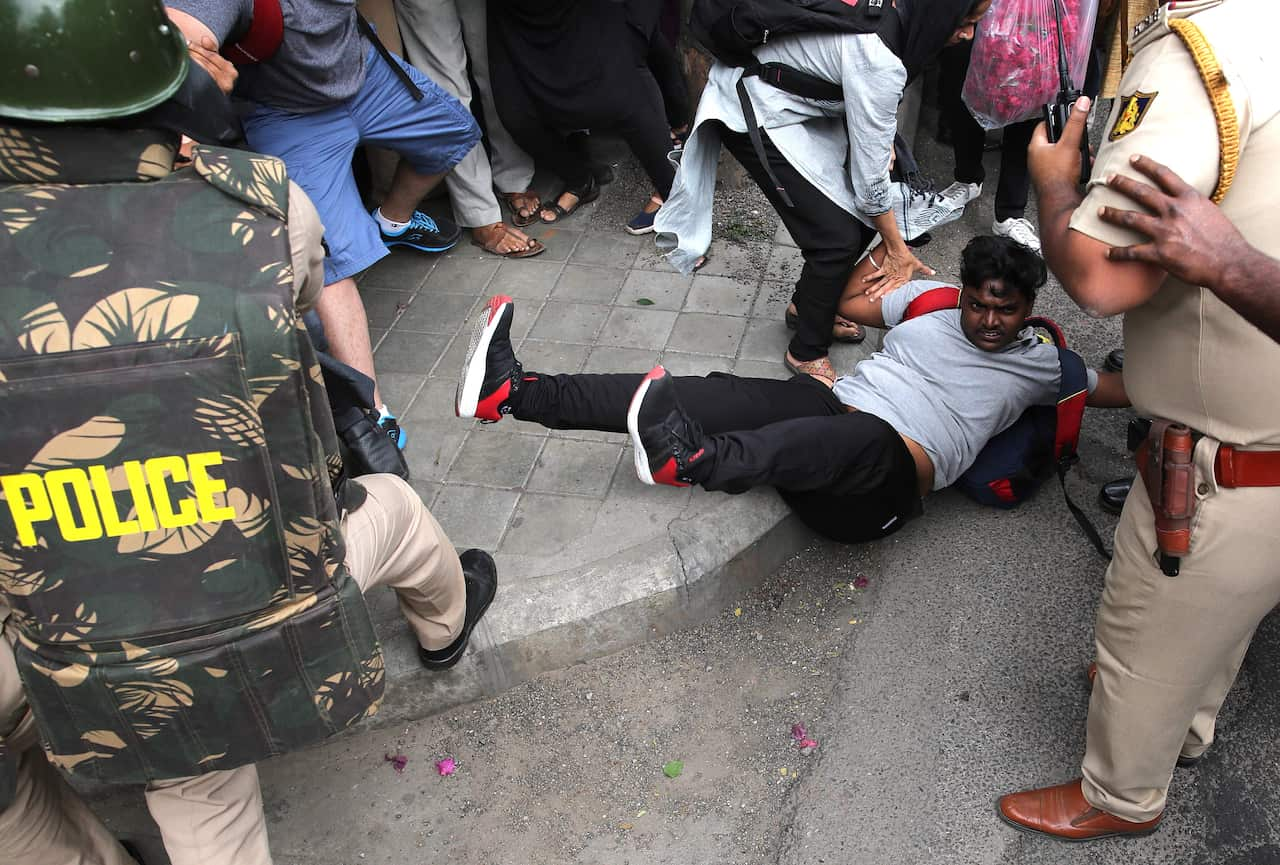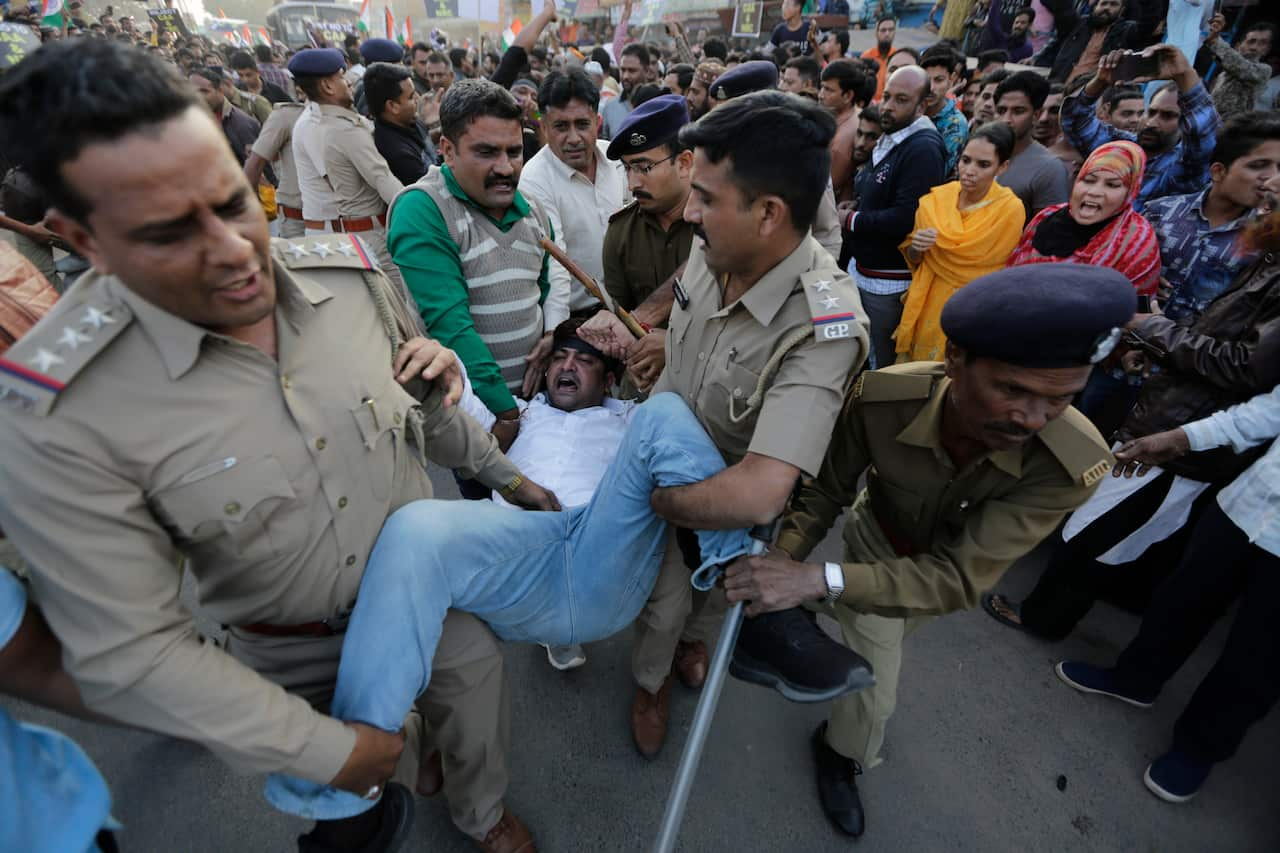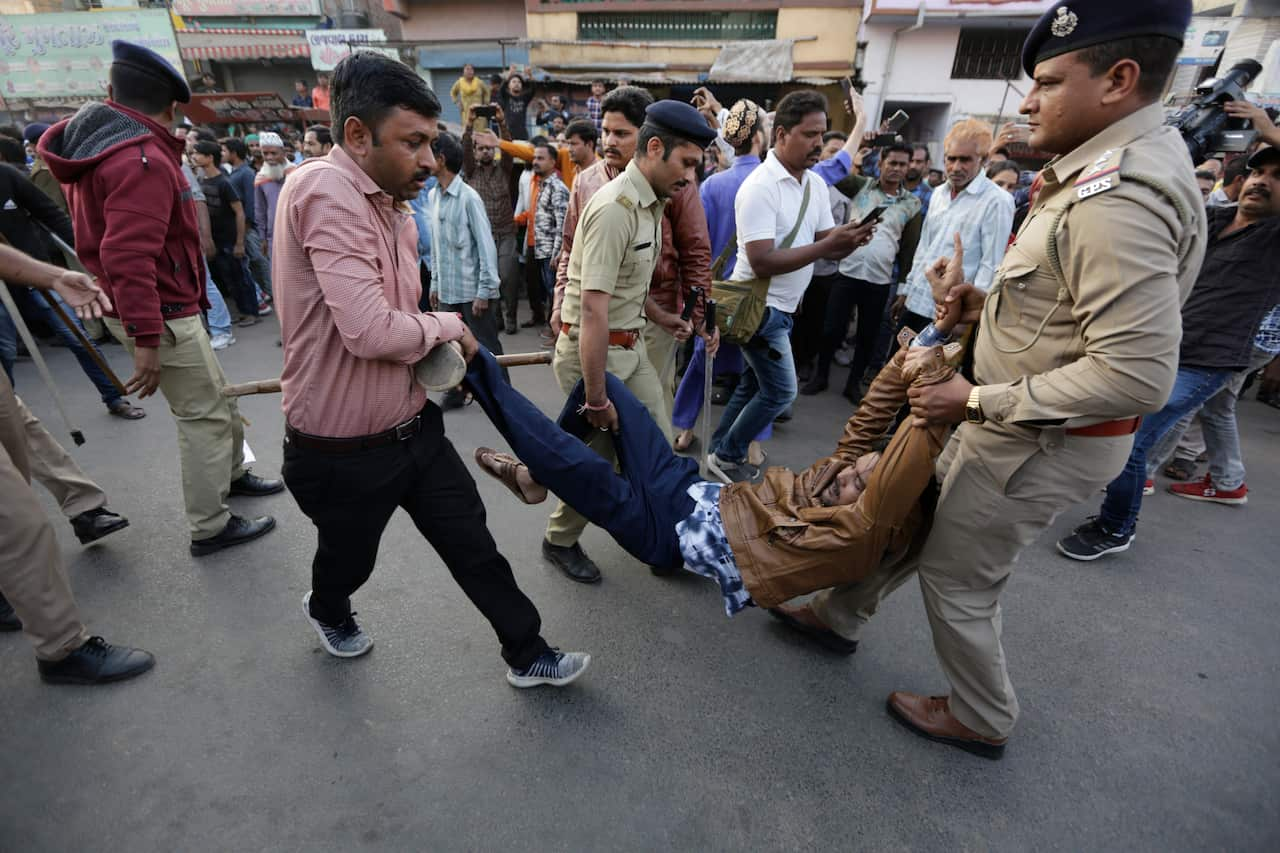At least three people are dead after police opened fire at a demonstration, an official said on Thursday night, as fresh protests erupted across India against a contentious citizenship law critics say is anti-Muslim.
Two men, aged 23 and 49, "died in police firing during the protests", Qadir Shah, a spokesman for the deputy commissioner of the southern city of Mangalore, said.
Another man was taken to hospital in the northern state of Uttar Pradesh with a gunshot injury and died soon after, according to hospital staff.

Authorities have imposed a curfew in some areas.
Four others were being treated at a hospital in Mangalore "with bullet injuries following the clashes", a district medical officer said.
Shah said police fired their weapons after some 200 demonstrators refused to stop their march.
"They marched towards the busiest area of Mangalaru. This led to lathi (big, wooden sticks) charge. Then the tear gas was fired. When the protesters still didn't stop, the police had to open fire after that," he said, using an alternate name for the city.
Security forces and protesters had clashed in Uttar Pradesh, Gujarat and Karnataka states, while elsewhere police bundled demonstrators onto buses, shuttered Delhi metro stations and cut cellphone access in some areas.
The protests were sparked by a new law easing citizenship rules for people fleeing persecution from three neighbouring countries but not Muslims, stoking accusations at home and abroad that Prime Minister Narendra Modi wants to reshape India as a Hindu nation, which he denies.
Seven months after Mr Modi swept to a second term, the past week has seen six people killed and dozens injured.

On Thursday, authorities banned gatherings across swathes of the world's biggest democracy that together are home to hundreds of millions of people.
Fresh violence erupted in Samhbal, Uttar Pradesh, where hundreds of protesters set fire to vehicles and threw stones at security forces who responded with tear gas, local police chief Yamuna Prasad said.
In Mr Modi's home state of Gujarat, police said they baton-charged demonstrators and arrested 50 people.
As others ignored the assembly bans in Delhi and elsewhere, authorities ordered telecom firms to cut calls, text messages and data in parts of the city.
India is already the world leader in cutting the internet, activists say, and access was also restricted in parts of the northeast and in Uttar Pradesh, home to a large Muslim minority.
In Delhi, prominent rights activist Harsh Mander was detained, while in Bangalore globally renowned historian Ramachandra Guha was among those dragged onto a police bus.
The day's biggest demonstration took place in Malegaon district of Maharashtra state with as many as 60,000 people, police said.
In Mumbai, a crowd of thousands including tattooed students and older Muslim men wearing skullcaps brandished Indian flags, posters of Mahatma Gandhi and handed out copies of the constitution.
A crowd of around 40,000 people in eastern West Bengal's Kolkata city was led by the state's chief minister Mamata Banerjee, a strong Modi critic.
'Police brutality'
The protests have been fuelled by anger about alleged police brutality including at a university in Delhi on Sunday night.
Security forces in the capital have fired some 450 tear gas shells in the past five days, the Hindustan Times Daily reported. One student reportedly lost an eye.

The demonstrations in the city have at times turned violent with vehicles set on fire and protesters hurling stones at police in heavily Muslim areas on Wednesday.
"If they show us the lathi (police baton), we will show them roses," a Delhi student as she handed flowers to police on Thursday.
With international concern about the situation growing, Mr Modi has insisted that his government does not aim to marginalise Muslims, tweeting this week that the new law "does not affect any citizen of India of any religion".

